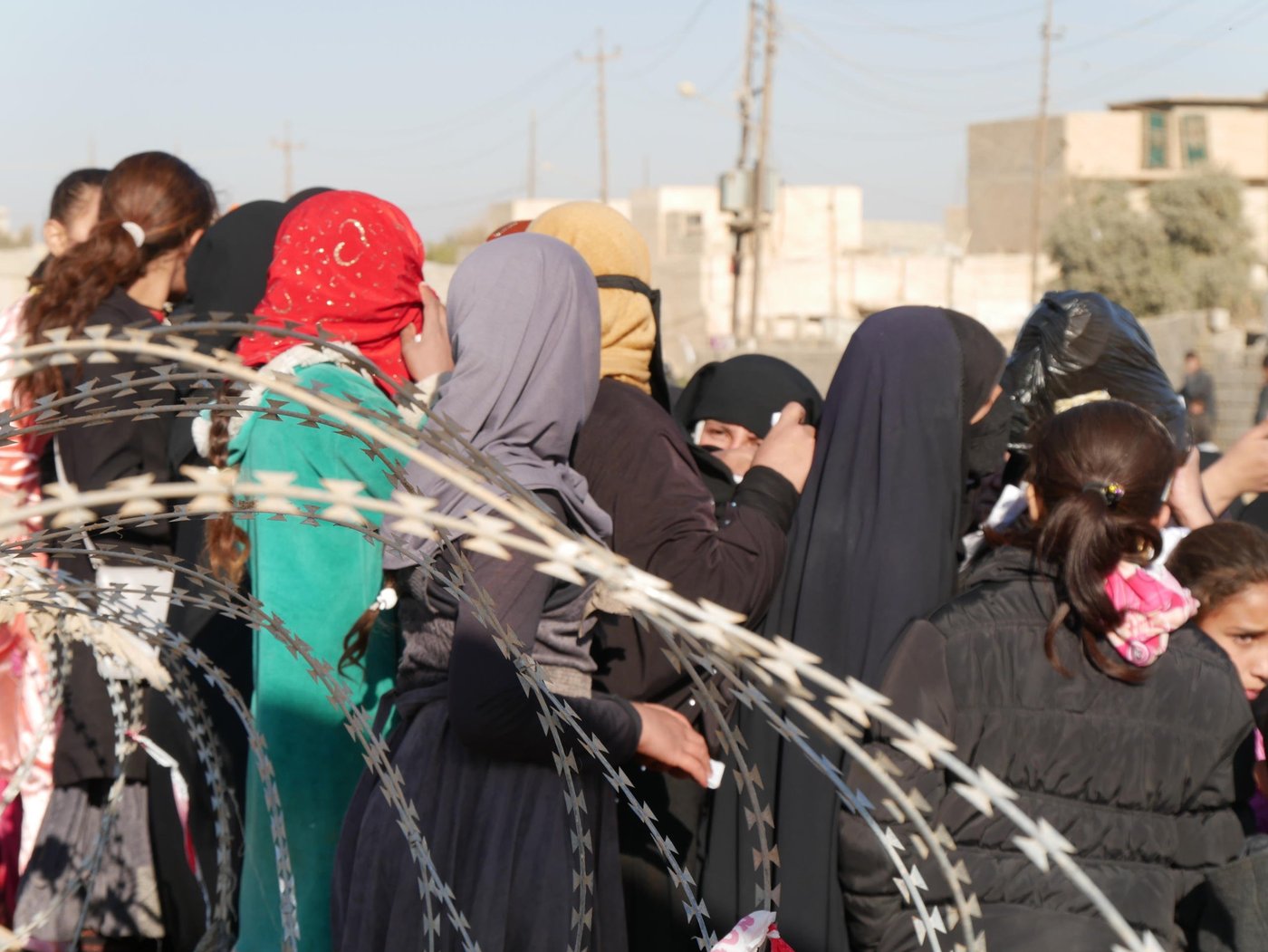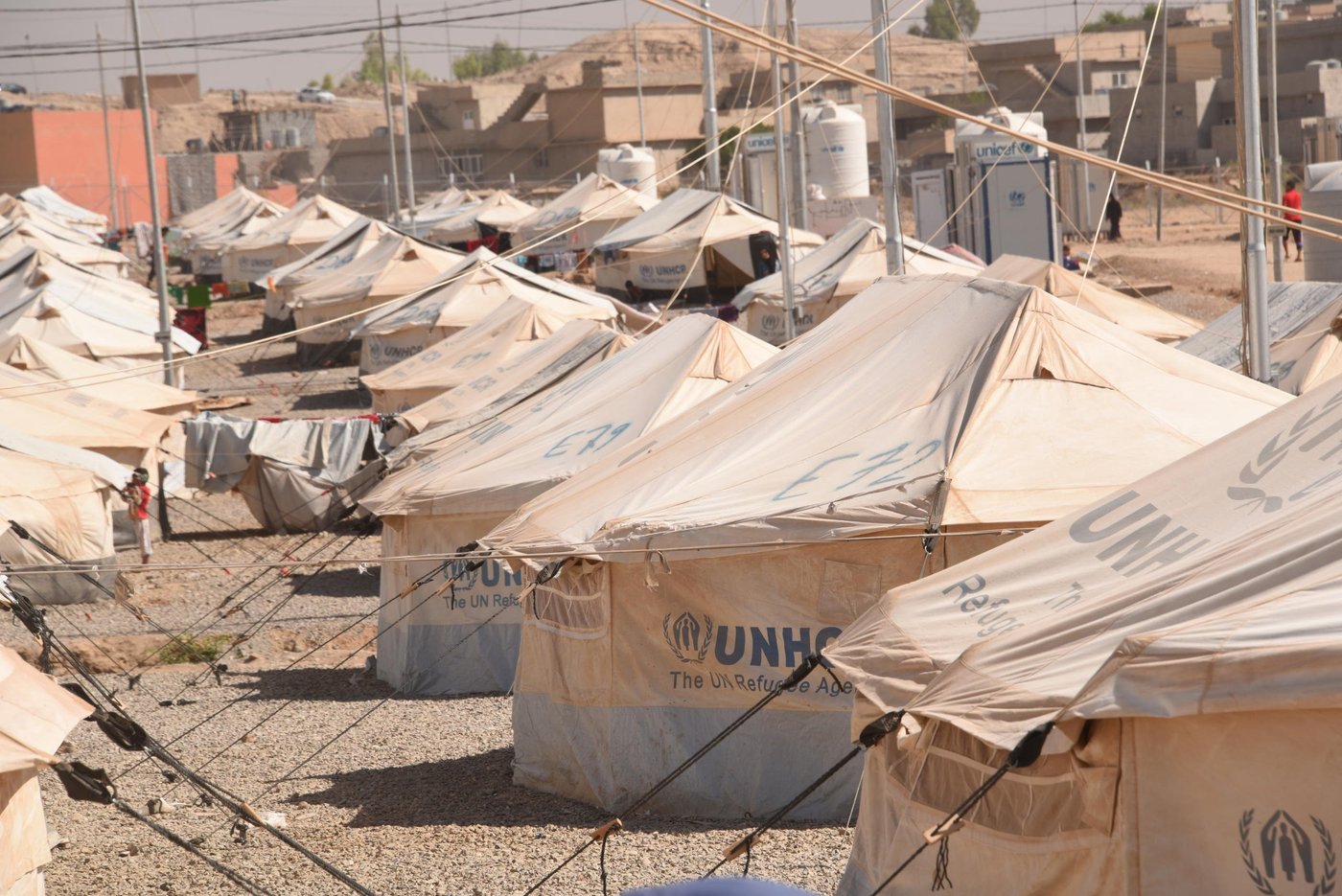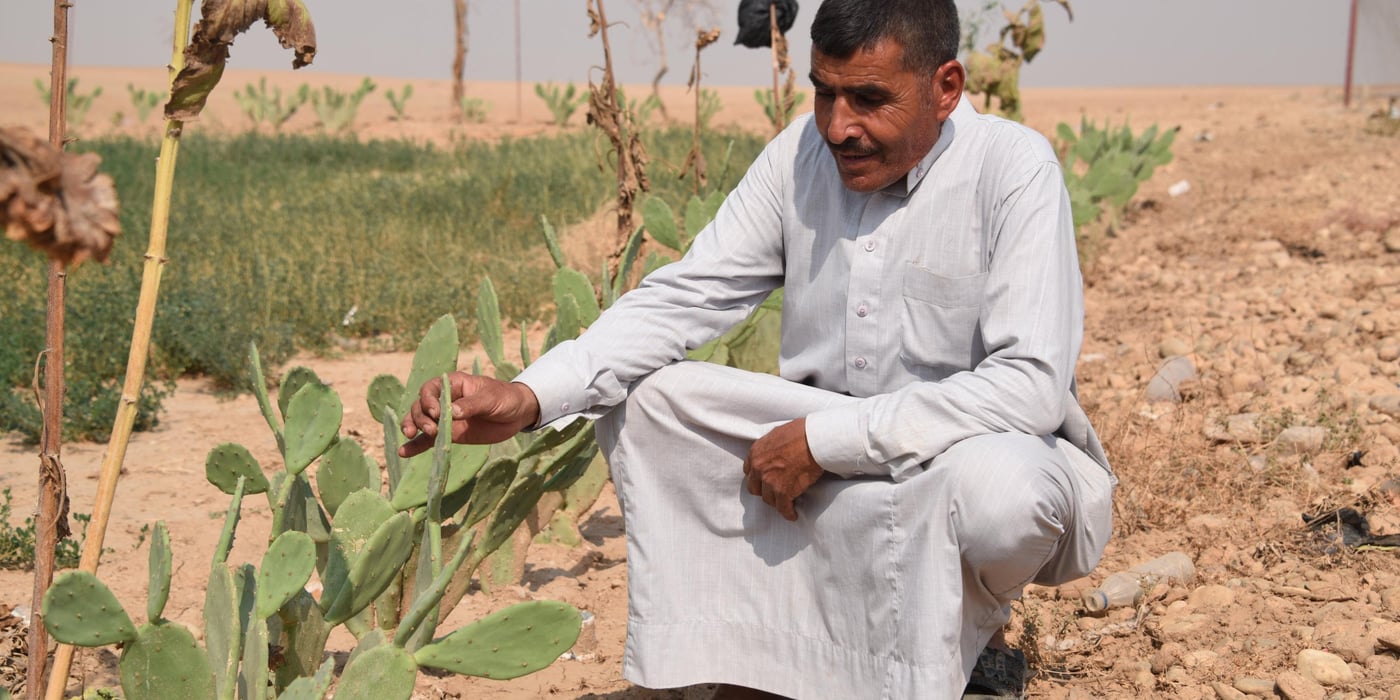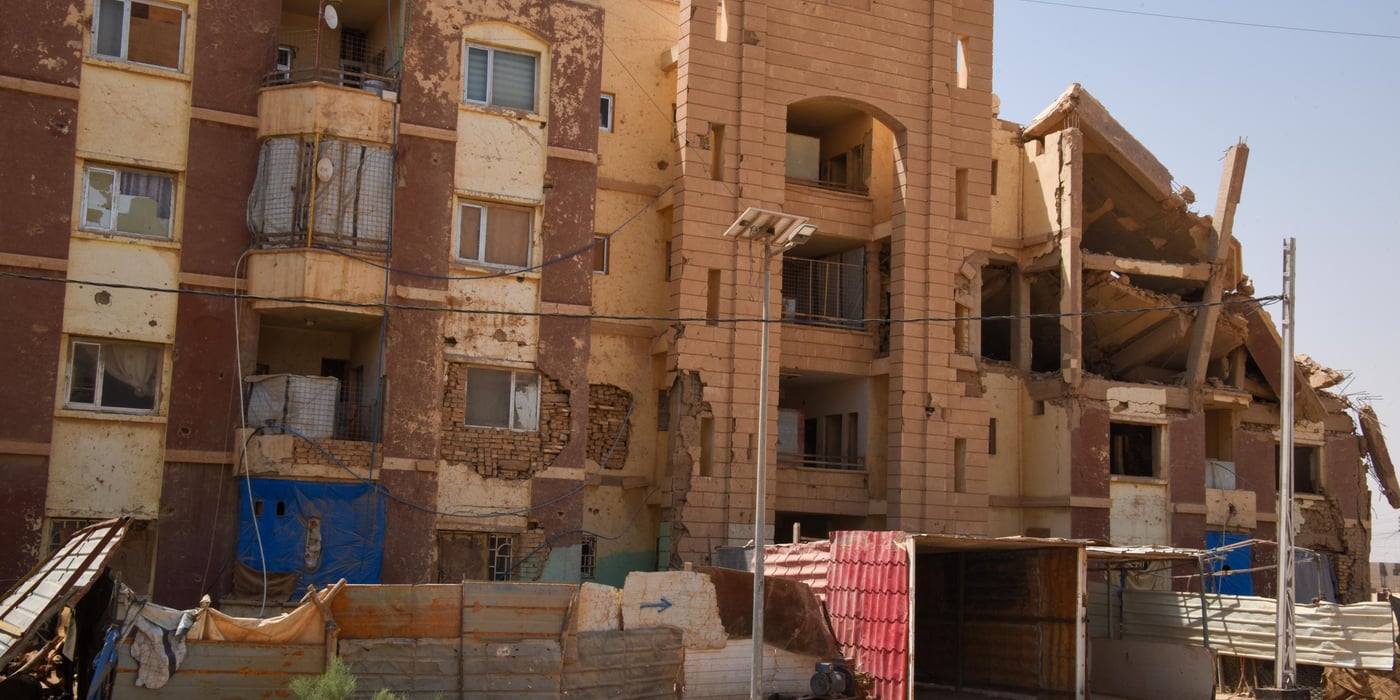
As the battle to retake Mosul intensifies, tens of thousands of people are fleeing Mosul and its surroundings, to seek safety in displacement camps. For women and girls, escaping ISIS control and the conflict to oust them comes with relief and a greater sense of security. At the same time displacement can lead to an escalated risk of physical and sexual abuse, as well as exploitative behaviour, including domestic violence and forced marriage.
Intended as 'gifts' for ISIS
When her father died ten years ago, Aliya*, aged 16, moved in with her uncle, together with her sister, brother and mother. Her uncle never treated the family well, and would often beat her mother and the two girls. When Mosul fell into the hands of ISIL two years ago, Aliya's uncle became an ISIS supporter and things became much worse for the family. He wanted to 'gift' the two young girls to ISIS as sex slaves so he would be promoted to Emir, a senior leader.
Not even having his son executed by ISIS — because of an alleged rape he had committed against another Emir's wife — was enough to deter the uncle's dedication to the extremist group.
When Aliya's older brother found out what their uncle was planning, he hid his two sisters in a neighbouring village. When the uncle eventually found them he almost shot the brother, and went on to punish the girls. "We were tied and blindfolded and kept in the house for days, without any food," recalled Aliya.
Left with nothing
One day the uncle tried to rape Aliya's mother in front of her and her sister. Her mother screamed and fought until the neighbours intervened, allowing the mother to escape with her children. They left with nothing, walking through the desert until they reached the first Peshmerga military checkpoint.
They had to shout and wave with their arms to convince the soldiers that they were civilians. While the women and girls were screened and taken to the Government-run Debaga camp for internally displaced people outside Erbil, Aliya's older brother was arrested as an ISIL suspect. As far as Aliya knows, he remains in prison today.
Aliya has spent the past six months in the camp with her sister and mother. Almost 30,000 people now live there, and the camp is full of life, with small shops and businesses set up along its dusty roads. Several women and girls' centres have been set up in the camp, funded by the Iraq Humanitarian Pooled Fund, and run by the local organisation Al Messala and UNFPA.
"Important to tell my story"
Aliya goes to the women's centre every day. "My family and I have been through a lot and I think it's important to tell my story. ...I've benefitted a lot from everything they have to offer," said Aliya. The centre raises awareness among women and girls of gender-based violence and reproductive health; gives survivors psychological support; as well as distributing 'dignity kits' which meet women and girls' basic hygiene and health needs.
They also train women and girls in sewing and painting, which Aliya has loved learning. Aliya stands tall and beautiful and smiles as she explains that her dream is to learn English and become an interpreter, and one day to be able to visit America.

Escaped ISIS and abusive husband
Thirty-two-year-old Hanan* has her own complex protection story, having fled ISIS as well as an abusive husband, who she nevertheless feels would protect her now that she is displaced.
Hanan and her family lived for two years under ISIS, in a small neighbourhood in the outskirts of Mosul. She explains how her life changed under ISIS rule. She was forced to cover up from top to toe and to close the curtains in her house so that no one could see them from outside.
“There was a lack of food and medicine, we were all suffering and choking under the control of ISIS,” she said, placing her hands on her throat.
One day she travelled to a nearby village with her children to raise money for food by selling a pair of golden earrings and realized this was her opportunity to escape. After phoning her husband, urging him to join them when they were safe, she started walking south until she came across a military convoy escorting civilians to nearby camps for those internally displaced.
Her husband still remains in their village, and has not yet been granted passage by the military forces, as he’s still waiting for his residency papers.
Hanan burst out in tears as she explained how vulnerable she feels without her husband in the tent. “It is not good for a woman to stay alone in this camp,” she said.
But at the same time, her husband also posed a threat. Hanan rolled up her sleeve to reveal a scar on her forearm where her husband had once broken her arm after one of his regular beatings. “He’s got mental problems, and he became even more aggressive under ISIS when he wasn’t allowed to smoke,” said Hanan.
But her parents would never approve of her leaving him and she wants the family to stay together now that they are displaced.

Safe space in the camp
Hanan also frequents the women's centre, receiving a lot of support from the staff.
"I feel happy when I'm with the social workers and the other women," Hanan told me. "They are so nice to me and listen to my concerns. I feel a sense of community there." She feels the centre is a safe space for women in similar situation like her.
In 2016, the Iraq Humanitarian Pooled Fund allocated US$7.2 million to 15 projects set up to provide protection services like these. Projects offer psychosocial support, access to safe spaces, aid materials, awareness raising, and referrals for follow-up services to 80,000 women and children.
Sylvia Rognvik works as a humanitarian affairs officer in Iraq.
*The names have been changed to protect the individuals.




